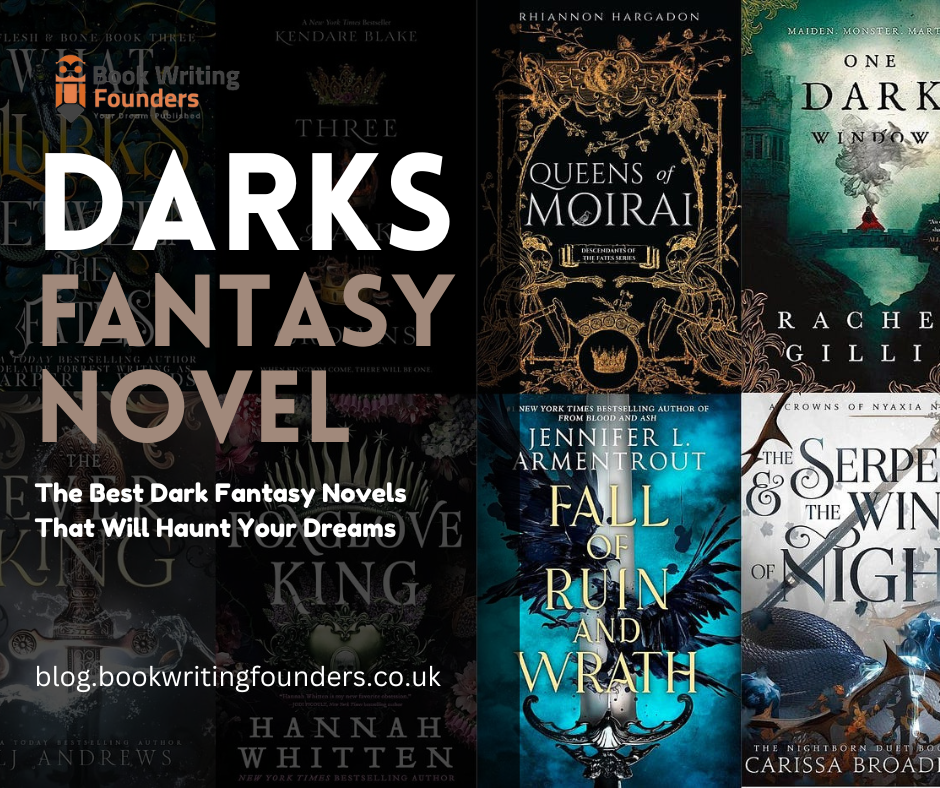
Writing
Introduction
To write a memoir, understanding and interpreting your life’s journey as it is about sharing it with others. It’s an opportunity to tell your story in your own words, reflect on your experiences, and offer insights only you can provide.
A memoir is a non-fictional narrative that recounts the author’s personal experiences, memories, and reflections. It typically focuses on specific events, periods, or themes from the author’s life and offers insights into their thoughts, emotions, and perspectives. Memoirs often show the author’s inner battles, growth, and development, which helps viewers understand their life story better.
A Comprehensive Guide to Memoir Writing
Below is the Manuscript Writing Guide to learn the detail elements of memoir writing:
Identifying the Central Theme or Focus
Personal Significance: Choose a theme or period that holds significant personal meaning. It could be a turning point, a major life event, or an ongoing personal struggle.
Universal Appeal: Consider aspects of your story that others can relate to. Your personal experiences can resonate with readers when they touch on universal themes like love, loss, triumph, or transformation.
Gathering Memories
Chronology: Although a memoir isn’t a full autobiography, it helps to outline a chronology of relevant events.
Sensory Details: Recall the sights, sounds, smells, and textures associated with your experiences. These details enrich your storytelling.
Emotional Journey: Reflect on your feelings during these events. The emotional journey is as important as the physical one.
Crafting a Narrative Structure
Beginning: Set the scene and introduce the main theme. Draw readers in with a compelling opening that hints at the memoir’s focus.
Middle: Develop the narrative through events or experiences that highlight your theme.
End: Conclude with reflection or resolution. Show how the experiences have shaped or changed you.
Developing a Unique Voice
Authenticity: Your voice should be authentically yours –witty, serious, contemplative, or raw.
Consistency: Keep your voice consistent throughout; it is the right way to write a memoir to maintain a connection with your readers.
Incorporating Anecdotes and Dialogues
Anecdotes: These are small stories within your larger narrative. Choose anecdotes that are particularly telling or poignant.
Dialogues: Bring your story to life with conversations. They help to show the personality and dynamics between characters.
Reflecting on Lessons Learned
Insights: Share insights and lessons learned. Readers are often drawn to memoirs for the wisdom they offer.
Personal Growth: Highlight how the events have contributed to your personal growth or changed your perspective.
Embracing Honesty
Vulnerability: Be honest about your flaws, mistakes, and emotions. Vulnerability can create a powerful connection with your readers.
Respectful Storytelling: While being honest, respect others’ privacy and perspectives.
Editing and Revising
Self-Editing: After writing your first draft, step away for a while. Then, return with fresh eyes for self-editing.
Structure and Flow: Ensure that your memoir has a good flow and that each section smoothly transitions into the next.
Feedback: Seek feedback from trusted memoir ghostwriters who can provide constructive criticism.
Final Touches
Title: Choose a title that encapsulates the essence of your memoir.
Preface or Introduction: Consider adding a preface or introduction that sets the context for your readers.
Exploring Themes and Motifs
Recurring Themes: Identify themes that recur in your stories. These could range from resilience in adversity, the journey of self-discovery, or the impact of family and relationships.
Motifs: Use motifs or recurring symbols to add depth to your narrative. For example, a particular object or setting is significant in your story.
Character Development
Portraying Real People: When writing about real people, portray them as fully fleshed-out characters. This means acknowledging their complexities and contradictions.
Your Character Arc: Reflect on your development throughout the memoir. How did you evolve? What did you learn about yourself?
Setting and Context
Backdrop: Provide a backdrop for your story. If your memoir covers a particular era or event (like growing up in the 1980s or living through a historical event), paint your readers a picture of that setting.
Cultural and Social Context: Include details about the cultural and social environment. This helps readers understand the context of your experiences.
Managing Time and Pacing
Chronological vs. Non-Chronological: Decide how to write a memoir, whether to tell your story chronologically or to play with the timeline. Sometimes, starting in media res (in the middle of things) can be more engaging.
Pacing: Control the pacing to keep readers engaged. Faster pacing can be used for exciting or intense events, while slower pacing can be used for reflection and depth.
Incorporating Research
Historical Accuracy: If your memoir includes historical events or cultural details, ensure accuracy through research.
Fact-Checking: To maintain credibility, personal memories can be cross-checked for dates, names, and places.
Ethical Considerations
Privacy of Others: Be mindful of the privacy and feelings of others featured in your memoir. Consider changing names or details to protect their privacy.
Truth vs. Artistic Licence: For some memoir writing experts artistic interpretation, it’s important to stay true to the facts of your experiences.
Understanding the Essence of Memoir Writing
Read Other Memoirs:
Immersing yourself in the works of other memoirists can provide valuable inspiration and insight into different writing styles and approaches. One way to learn more about narrative composition, story structure, and emotional evocation is to read a variety of autobiographies. Consider what resonates with you and how you can apply similar techniques to your memoir.
Write Regularly:
A consistent writing routine is essential for maintaining momentum and progressing in your memoir. Set aside dedicated time each day or week to work on your manuscript, whether early in the morning, during your lunch break, or in the quiet hours. Sticking to regular writing sessions will help you slowly finish your book and stay connected to your story.
Be Patient:
Writing a memoir is a deeply personal and often emotional process that can take time to unfold. Be patient as you navigate the ups and downs of reliving and recording your experiences. Allow yourself space to process your thoughts and emotions, and don’t rush the writing process. It heals, and growth often comes hand in hand with patience and perseverance.
Accept Vulnerability:
Memoir writing requires a willingness to delve into your experiences and emotions, even when uncomfortable or challenging. Accept vulnerability as a source of strength in your writing, allowing yourself to be open and honest about your triumphs, struggles, and vulnerabilities.
Being yourself on paper allows you to form a stronger connection with your audience and invites them to appreciate and understand you.
Show, Don’t Tell:
One of the golden rules for writing a memoir is showing rather than telling. Instead of simply summarizing events or explaining your feelings, use vivid imagery, sensory details, and compelling anecdotes to bring your experiences to life for the reader.
Engage the senses to transport your audience into the heart of your story, allowing them to see, hear, smell, taste, and feel alongside you.
Reflect and Gain Insight:
In addition to recounting events, reflect on the deeper meaning and significance of your experiences. Explore the lessons you’ve learned, the insights you’ve gained, and how your journey has shaped you.
Share your thoughts and comments to give your story more depth and meaning and get people thinking about their lives and experiences.
Seek Feedback:
Don’t be afraid to share your memoir with trusted friends, family members, or writing groups for feedback. Constructive criticism can help you identify areas for improvement, clarify your message, and strengthen your narrative.
Be open to feedback, but also trust your instincts as the author of your story. Ultimately, your unique voice and perspective will make your memoir shine.
Revise and Edit:
Revision is essential to the writing process, so be prepared to revise and refine your memoir multiple times. Reflect on writing a memoir clarity, coherence, pacing, and voice as you review your manuscript.
Cut any unnecessary or repetitive passages, tighten up your prose, and polish your writing to ensure every word effectively serves your narrative. Great writing is often the result of careful editing and revision.
Stay True to Yourself:
Throughout the writing process, stay true to yourself and your story. Resist the temptation to embellish or exaggerate for the sake of drama, and avoid comparing your journey to that of others. Your memoir reflects your unique experiences, perspectives, and voice and deserves to be told authentically and unapologetically.
Celebrate Your Accomplishments:
Writing a memoir is no small feat, so celebrate your accomplishments. Whether you’ve-you’ve completed a chapter, reached a word count milestone, or received positive feedback from readers, acknowledge and appreciate your progress.
Celebrate the courage and resilience it takes to share your story with the world and embrace the journey of memoir writing with gratitude and joy.
Conclusion:
To write a memoir, you can start by thinking about the most meaningful events or themes. Then, organize your memories and write them down in a way that makes sense. Remember to be honest and true to yourself as you write. Your memoir is a chance to share your experiences and connect with others through your words.
FAQs:
What is the connection between creating a cookbook and writing a memoir?
The connection lies in the storytelling aspect. Just like writing a memoir involves narrating personal experiences and memories, create your own cookbook can also be a form of memoir writing, where recipes are accompanied by anecdotes, family stories, and memories associated with food.
Can professional editors help me with the content of my memoir?
Yes, professional editors can offer guidance on content development, including strengthening character arcs, improving dialogue, and ensuring consistency in tone and voice throughout your memoir.





